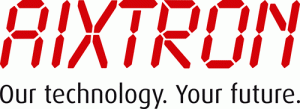
The acquisition of Aixtron SE (ADR) (NASDAQ:AIXG) by Chinese company Fujian Grand Chip Investment Fund (FGC) is becoming complicated. German officials have reneged on an earlier approval of the deal, citing emergence of fresh security information that warrant a review of the transaction. But German newspaper Handelsblatt reported that U.S. intelligence services might be behind the decision to rescind approval of the Aixtron/FGC deal.
Aixtron is a maker of semiconductor equipment. It turns out that U.S. intelligence recently warned Germany that allowing Aixtron to be acquired by the Chinese could give Beijing crucial technology that it could put into military use.
The report said U.S. intelligence officials met with German authorities at the U.S. embassy in Berlin. The intelligence information was shared at the meeting with German officials being shown the evidence to back the claim.
Though U.S. intelligence declined to hand over the evidence of their intelligence, German officials decided it would be wise to go back to the drawing board in reviewing the Aixtron -FGC transaction.
A long process
But a fresh review could take a while. A spokeswoman for Germany’s economic ministry, which reviews such deals, said completing a fresh review of the Aixtron/FGC deal could take anywhere between two and three months.
Aixtron sells its equipment to makers of LED chips. FGC agreed to pay about $720 million to take control of Aixtron. Withdrawal of regulatory approval for the deal happened after FGC had managed to acquire 65% of Aixtron shares through a tendering process. The Chinese company had set a threshold of 50.1% to succeed in the acquisition.
China pours $11 billion into German companies
The sharing of intelligence and Germany’s revocation of Aixtron-FGC deal comes amid growing Chinese interest in German technology. This year alone, Chinese companies have invested about $11 billion in German companies, including takeover deals. That is far above the earlier record of $2.6 billion China spent on acquisitions in Germany in 2014.




